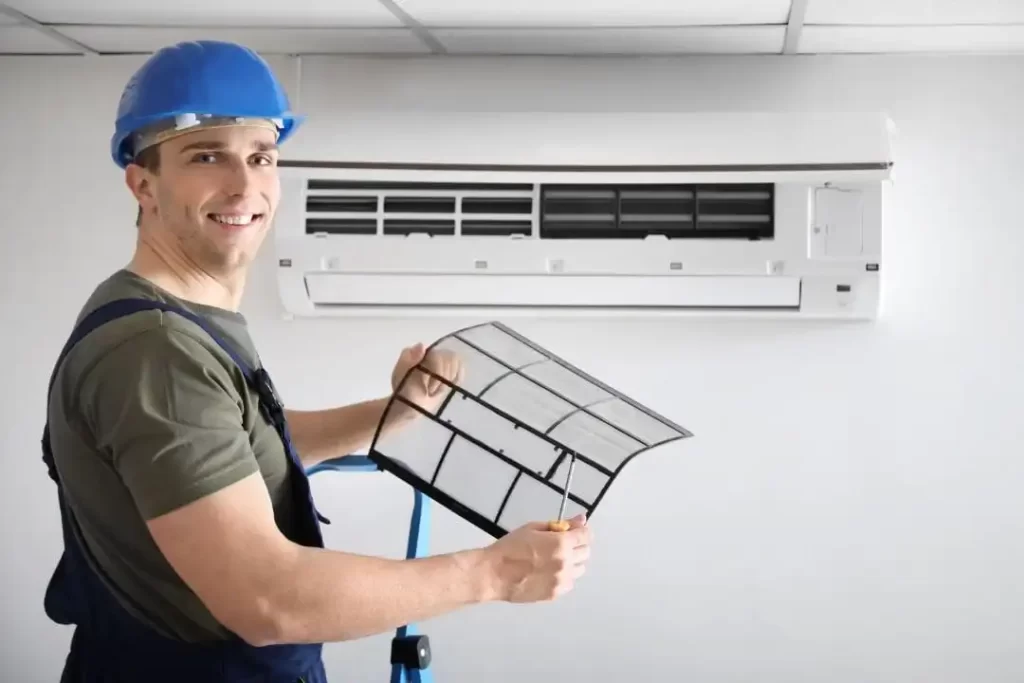What Causes a Dirty Air Conditioner?
 An air conditioner (AC) is one of the most important appliances in a home, especially during the hot summer months. It keeps the indoor environment comfortable by cooling the air and regulating the temperature. However, a crucial aspect that many people tend to overlook is the cleaning of their air conditioning system. Just like any other appliance, an air conditioner can accumulate dirt and debris over time, which can affect its performance and efficiency. But what exactly causes a dirty air conditioner?
An air conditioner (AC) is one of the most important appliances in a home, especially during the hot summer months. It keeps the indoor environment comfortable by cooling the air and regulating the temperature. However, a crucial aspect that many people tend to overlook is the cleaning of their air conditioning system. Just like any other appliance, an air conditioner can accumulate dirt and debris over time, which can affect its performance and efficiency. But what exactly causes a dirty air conditioner?
Buildup of dust and debris
A primary reason is the buildup of dust and debris present in the air. The air conditioner draws air from inside the home and, as it passes through the filter, collects dust, pet hair, pollen, and other particles. Over time, these particles can build up on the air filter, coils, and other components, causing the system to become dirty. If you don’t clean or replace the filter regularly, it can become clogged, which restricts airflow and makes the system work harder, leading to higher energy usage.
Mold and mildew
Another common cause of dirt buildup is mold and mildew. Moisture naturally forms inside your air conditioner, especially in humid climates. This moisture, combined with organic material, creates an ideal environment for mold and mildew to grow. When this happens, not only can your system become dirty, but it can also produce a musty odor and pose a health risk to anyone with allergies or respiratory issues. Proper maintenance, such as keeping your system dry and cleaning your evaporator coils, can help prevent mold and mildew from forming.
The outdoor unit of a central air conditioning system is also susceptible to dirt and debris. As debris accumulates around the condenser coils, it can block airflow, making it harder for the system to expel heat. This can cause the air conditioner to overheat, reducing its efficiency and lifespan. Regularly cleaning the outdoor unit and removing any debris around it can help keep it in tip-top condition.
Additionally, the ducts and air vents in your home can contribute to a dirty air conditioning system. If the ducts are filled with dust, dirt, or even mold, the air passing through them can carry these particles into the air conditioner. This is especially true if the ducts are not sealed properly or if there are leaks in the system. Over time, dirt buildup in the ducts can lead to a dirty air conditioner and a reduction in indoor air quality.
Poor installation or maintenance
Finally, poor installation or maintenance can also contribute to dirt buildup. If your air conditioner is not installed properly, it can cause drainage or airflow problems, which can lead to moisture buildup and an increased risk of mold or grime. Additionally, neglecting routine maintenance tasks, such as cleaning coils, checking refrigerant levels, or replacing filters, can cause your system to become dirty and inefficient.
In conclusion, an air conditioner gets dirty due to a variety of factors, including dust accumulation, moisture buildup, debris around the outdoor unit, and improper maintenance. Regular cleaning and maintenance of both the internal components and the outdoor unit can help keep your air conditioner running efficiently and improve the air quality in your home.
Call Emergency Plumber in Birmingham. After your call, we send immediately the right technician to your place. Furthermore, our Customer Service is 24 hours available. We also, collaborate with Emergency Services 24H, Local Services 24H, Emergency Plumber in Cambridge, Emergency Plumber in Luton and Emergency Plumber in Barnet.
